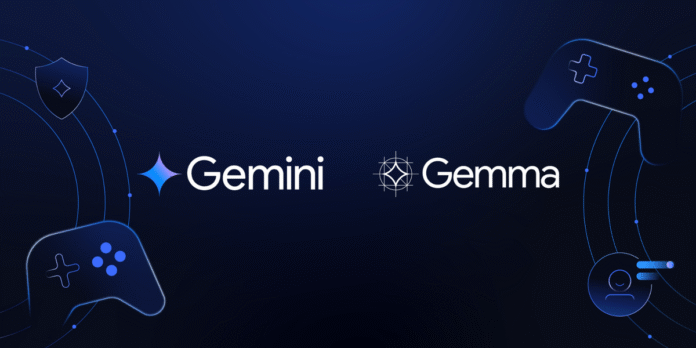Generative AI is reshaping the gaming landscape. With AI, game developers are creating dynamically evolving games and delivering unprecedented player experiences that were previously unimaginable.
Google has been a leader in AI research for years. Google DeepMind specifically, has a rich history in games. They’ve pioneered examples of models that generate 3D playable worlds from single images and created agents capable of analyzing gameplay directly from the screen, offering real-time conversational assistance to players.
Our latest models, Gemma 3 and the Gemini 2.5 family, are faster, more capable, and simplify the integration of advanced AI features into your games.
In this blog post, we’ll recap our announcements from the Games Developer Conference (GDC) this year and explore how Gemma 3 and Gemini models can help you more easily build AI experiences in your games.
Gemma 3: our next generation open model
Recently we launched Gemma 3, our most capable model you can run on a single GPU or TPU. It brings new features to our open model family like:
- Multimodal Input: Build games with AI that can analyze images, text, and even video.
- Extended Context: Process vast amounts of information – think entire character dialogs, persistent game worlds, and personalized game experiences.
- Function Calling: Build AI agents that can take actions provide intelligent assistance, and adapt dynamically with player input.
- 140+ Languages: AI that truly understands and speaks your player’s languages, capturing nuances and cultural context.
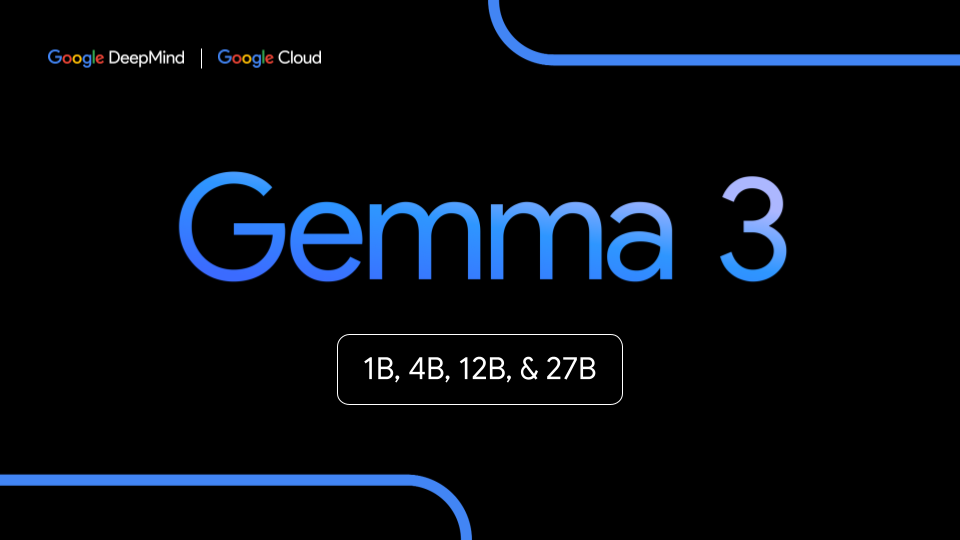
Gemma 3 is available in sizes ranging from 1B to 27B. These models are designed to run fast, directly on devices — from smartphones and laptops to powerful workstations, offering enhanced privacy and control.
Explore the different sizes and capabilities of Gemma 3 models in Google AI Studio to get started.
Gemma 3 Unity Plugin
To showcase Gemma 3’s capabilities and ease of implementation, we released an open source Gemma Unity plugin. This enables you to easily integrate Gemma 3 on-device in your games in the same way you would other Unity packages.
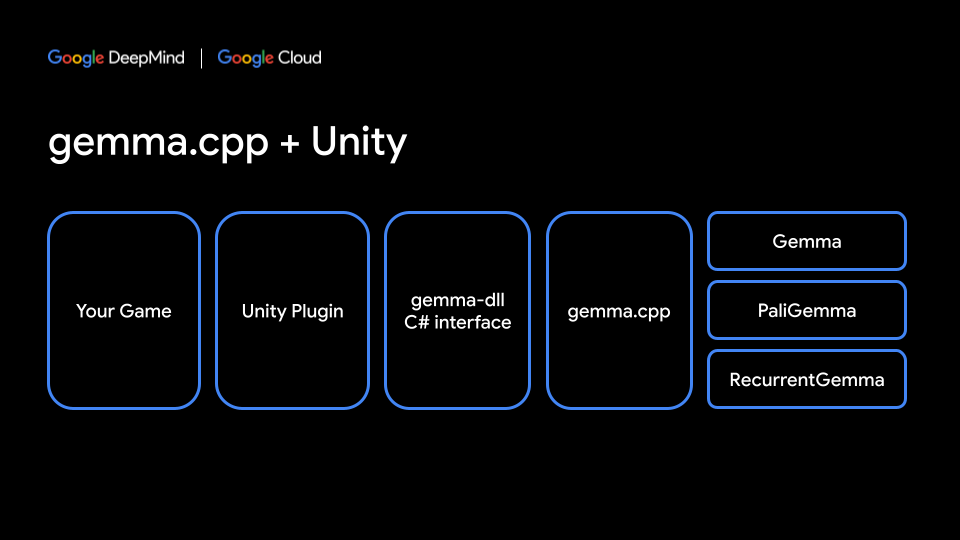
The Gemma Unity plugin is built on Gemma.cpp, a lightweight, standalone C++ inference engine designed for performance and portability, making it a good choice for running Gemma models on a variety of target devices and platforms for game development.
Gemma.cpp is ideal for game developers considering local models as it delivers efficient CPU inference across a wide range of devices, freeing GPU resources for graphics in Unity.
Gemma Journey
To demonstrate the Gemma Unity plugin, we collaborated with Google Partner Innovation to create an open source sample game called Gemma Journey. To play, players move between rooms to interrogate Android themed NPCs that generate real-time bespoke dialogue challenging players to solve riddles to progress to the next room.
For example, players can interact with Chef Gus, a highly-regarded and temperamental chef employed to cook for the wealthy owner of the estate and their guests. Gus is passionate and proud of his culinary skills. He can be easily offended by any perceived criticism of his cooking and is quick to anger, often expressing his frustration with dramatic flair. Gus’s role and personality, along with game logic and rules, are defined in the Gemma 3 prompt, guiding his interactions and the riddle he presents to players in the game.
Speaking with Gus you will notice his responses are heavily influenced by how we prompted Gemma 3 with his background, tone, and vocabulary. He can tell you about his hometown, favorite dishes, and culinary inspirations, all of which influenced the riddle he presents. He can even understand and speak other languages when they are used with him:
The game logic and persona of the NPC was created by a prompt for Gemma 3 written by our design team. Rather than authoring every phrase or challenge the NPC presents, Gemma 3 offers reasoning, multimodality, and extended context window allowing game designers to bring the characters to life with just a prompt, creating endless ways players can interact with the game.
Gemma Unity Plugin Collaboration
Additionally at GDC we shared that we are collaborating with Nazara Technologies, India’s largest publicly listed gaming company, to explore integration opportunities with their studios, including Fusebox and Wildworks. Through the Gemma.cpp plugin they hope to deepen player immersion and personalization across their game titles like Animal Jam enabling characters to dynamically and meaningfully engage with players in their games.
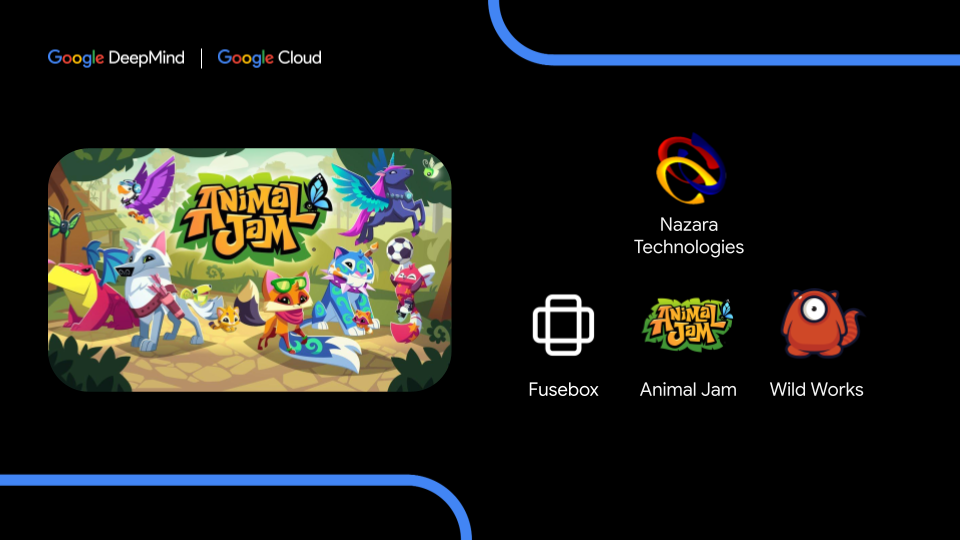
We hope that the game studios from Nazara and other Unity developers globally will find it easier to begin building with Gemma, utilizing the demo game fundamentals to streamline their Unity plugin integration process.
Learn more about the Gemma Unity Plugin and access to the demo game repo to get started.
Scaling Your Game with Generative AI in Google Cloud
At GDC, we presented the ‘Home Run: Gemini Coach Edition’ demo built with Gemini 2.0 Flash. This mobile baseball game, hosted on Google Cloud, showcases an agent built with Gemini 2.0 Flash that delivers real-time coaching, showcasing AI’s ability to personalize and elevate the player experience.

Finally, for large-scale, live service games, Google Cloud provides a robust and scalable solution for game developers building with Google AI:
- Vertex AI: Offers easy access to a wide range of models for content generation and more.
- Agones: Provides open-source, Kubernetes-based game server hosting for efficient scaling.
- Google Kubernetes Engine (GKE): Provides a seamless integration to run generative AI alongside game servers to enhance gameplay and personalize player experiences.
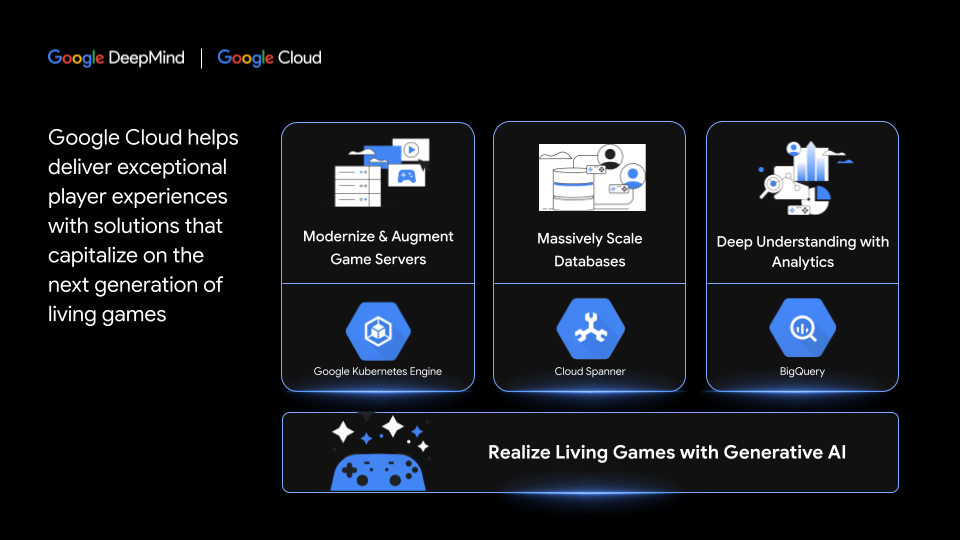
Level up your games with Google AI
Google’s AI ecosystem provides the tools and infrastructure you need to build the next generation of living games with AI. Combining on-device performance with cloud scalability empowers you to craft engaging, immersive, and dynamically generated gaming experiences. To explore these technologies further and access open-source samples and demos, visit ai.google.dev/gdc.
